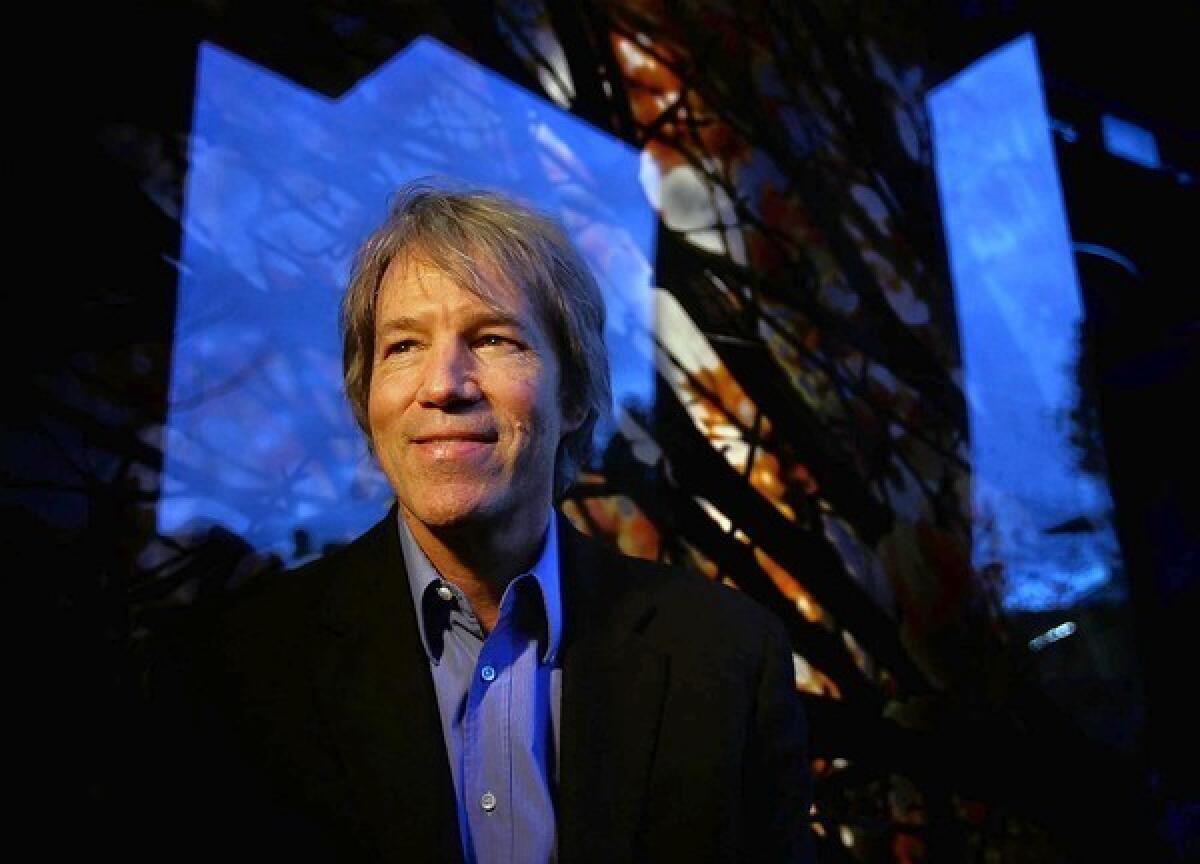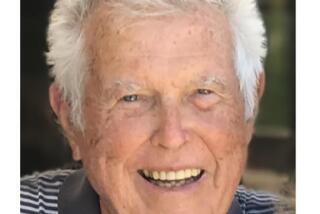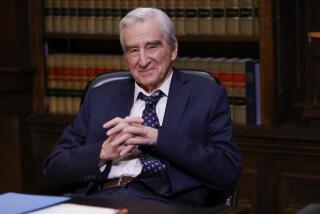David E. Kelley comes back to broadcast TV with CBS deal

Three years ago, high-profile TV producer David E. Kelley was promoting his new series “Goliath” for Amazon’s streaming service.
He was asked if he would ever go back to working under the constraints of broadcast television, writing to fit commercial breaks.
“Don’t think so,” Kelley said.
At least he didn’t say never.
Kelley, who in recent years has turned out shows for HBO, Amazon and AT&T’s Audience network, is back in the broadcast business with CBS. He has signed on to do a new drama based on “The Lincoln Lawyer,” Michael Connelly’s series of bestselling novels. The series is being produced by A+E Studios in association with CBS and will debut in the 2020-21 TV season.
Financial terms were not disclosed.
The announcement made Thursday at CBS’ portion of the Television Critics Assn. summer press tour marks the rare instance of a marquee TV producer coming back to the broadcast business after moving on to streaming.
Most major producing talent such as Shonda Rhimes and Ryan Murphy have been migrating to deep-pocketed streaming services which offer them the kind of creative latitude not afforded on ad-supported networks.
Kelley often pushed the boundaries in the pre-binging era of broadcast TV with his hits “Ally McBeal,” and “The Practice.” But his latest hit is HBO’s “Big Little Lies,” the star-studded limited series that has been one of most talked about and critically acclaimed shows. His next series, “The Undoing,” is also for HBO.
But CBS Entertainment President Kelly Kahl said broadcast TV should not be counted out. It still offers the opportunity to reach a massive number of people on a weekly basis and creating a sustained cultural conversation still has appeal to show creators. The networks are still the best platform to offer that kind of reach.
“We will continue to get the biggest audiences,” Kahl said. “You end up reaching a much broader swath of people when you put your shows on the air.”
CBS Entertainment Executive Vice President Thom Sherman said many streaming shows that have all of their episodes made available at once are less able to have a sustained impact on an audience.
“The show drops in one weekend, everyone watches it, and then they don’t talk about it again,” Sherman said. “When you are on a big broadcast network like CBS where your show is on every week, as Kelley said, the conversation continues and continues and continues. When you are on one of the other places, the conversation is very brief, and then people move on to other things until that show might come back.”
There is also the issue of the money that streaming services are willing to offer, but Kahl said CBS can compete on that front too.
“I think they get paid pretty well with us,” he said.
More to Read
Inside the business of entertainment
The Wide Shot brings you news, analysis and insights on everything from streaming wars to production — and what it all means for the future.
You may occasionally receive promotional content from the Los Angeles Times.











